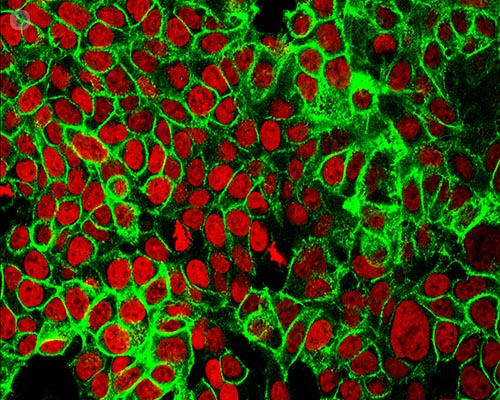Innovative radiotherapy techniques in prostate cancer treatment
Written in association with:Prostate cancer is one of the most common cancers affecting men, but the good news is that treatment options continue to improve. Radiotherapy is a key part of prostate cancer management, using high-energy rays to destroy cancer cells. Thanks to advances in technology, radiotherapy is becoming more precise and effective, offering patients better outcomes with fewer side effects.
Leading consultant clinical oncologist Dr Jamie Mills explores some of the latest radiotherapy techniques that are helping to transform prostate cancer treatment.

What is radiotherapy for prostate cancer?
Radiotherapy is a commonly used treatment for prostate cancer, which involves using high-energy rays to target and destroy cancer cells. This type of treatment can be used in various stages of prostate cancer, from localised cancer (confined to the prostate) to more advanced stages where the cancer has spread. Modern radiotherapy techniques have become increasingly sophisticated, allowing doctors to better target cancerous cells while minimising damage to healthy tissue.
How is image-guided radiotherapy (IGRT) improving accuracy?
One of the significant advances in prostate cancer treatment is image-guided radiotherapy (IGRT). In traditional radiotherapy, it can be challenging to ensure that the radiation precisely targets the cancer, particularly when treating a moving organ like the prostate, which can shift slightly depending on bladder or bowel contents. IGRT addresses this by using imaging techniques such as CT scans or X-rays during each treatment session.
These images allow for real-time adjustments, ensuring the radiation is delivered exactly where it is needed. This not only improves the accuracy of the treatment but also reduces side effects by sparing surrounding healthy tissue, such as the bladder and rectum.
What is stereotactic body radiotherapy (SBRT) and how does it work?
Stereotactic body radiotherapy (SBRT) is an innovative technique that delivers high doses of radiation to the prostate over fewer treatment sessions. Traditional radiotherapy may require daily sessions over several weeks, but SBRT can be completed in as few as five sessions. This technique uses advanced imaging and computer-guided equipment to deliver very precise radiation, targeting the cancer with pinpoint accuracy. While reducing the number of sessions is convenient for patients, SBRT has also shown promising results in terms of cancer control and preserving the patient’s quality of life.
How is proton beam therapy different?
Proton beam therapy is another cutting-edge treatment available for prostate cancer. Unlike conventional radiotherapy, which uses X-rays, proton beam therapy utilises protons—subatomic particles—to deliver radiation. The advantage of proton therapy lies in its precision; protons stop once they reach the tumour, delivering a concentrated dose to the cancer while sparing healthy tissues beyond the target area. This can reduce the risk of side effects like bowel and bladder issues, which are sometimes seen in conventional radiotherapy. However, proton therapy is not yet widely available and is typically reserved for specific cases where the precision is especially beneficial.
What role does brachytherapy play in prostate cancer?
Brachytherapy involves placing radioactive seeds directly into or near the prostate tumour. There are two types: low-dose-rate (LDR) brachytherapy, where the seeds release radiation over several months, and high-dose-rate (HDR) brachytherapy, where higher doses are given over a few minutes in temporary sessions. Brachytherapy is highly effective because the radiation is delivered directly to the tumour, minimising exposure to nearby organs. It is often used in men with localised prostate cancer and has the advantage of being completed in fewer sessions compared to external beam radiotherapy.
If you would like to book a consultation with Dr Mills, simply visit his Top Doctors profile today.


